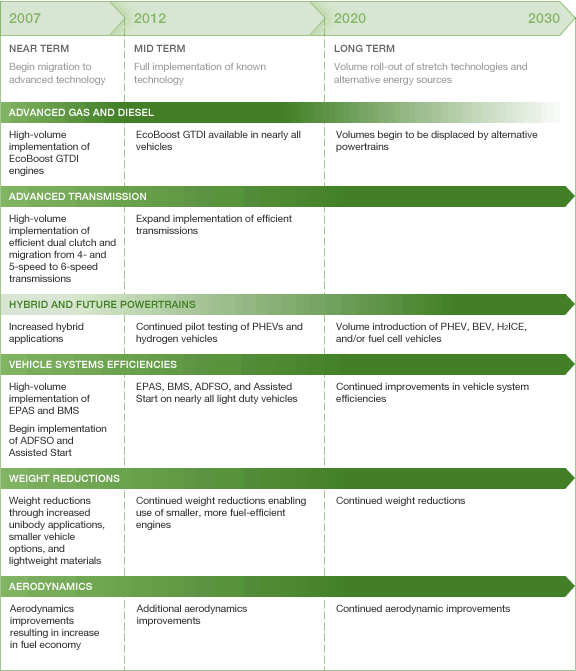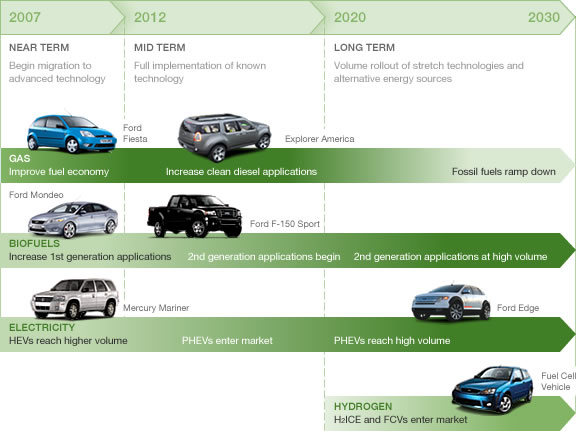Sustainable Technologies and Alternative Fuels Plan
In This Section
- Sustainable Technologies and Alternative Fuels Plan
- Near Term: Improving the Fuel Economy of Gas-Powered Engines
- Near to Long Term: Hybrid Electric Vehicles (HEVs)
- Long Term: Plug-in Hybrid Electric Vehicles (PHEVs)
- Near and Mid Term: Advanced Clean Diesel
- Near, Mid and Long Term: Renewable/Biofueled Vehicles
- Long Term: Hydrogen Internal-Combustion Engines (H2ICEs)
- Long Term: Battery Electric Vehicles (BEVs)
- Long Term: Hydrogen Fuel Cell Vehicles (FCVs)
Ford has developed a blueprint for sustainability based on the scientific consensus that the planet needs to stabilize CO2 emissions at 450 to 550 parts per million to avoid the most serious effects of climate change. As stated in the blueprint, Ford is targeting a 30 percent reduction in U.S. and EU new vehicle CO2 emissions, relative to the 2006 model year baseline, by 2020. We will address this goal by developing and implementing significant fuel-efficiency improvements in the near term and advanced powertrain and alternative fuel breakthrough technologies in the long term.
In the near term, for example, we are working to improve the fuel economy of our existing products through improvements in gas-powered internal-combustion technology and the expanded use of clean diesel and hybrid electric technologies. Longer term, our Sustainable Mobility Group is coordinating the development of next-generation, advanced technologies to achieve breakthroughs in fuel efficiency, emissions reduction and energy independence. These advancements are being pursued in areas such as hybrids, advanced clean diesels, biofueled vehicles, hydrogen internal-combustion engines, hydrogen fuel cell vehicles and plug-in hybrids. We believe it is important to pursue all of these various solutions, as different technologies will be appropriate for different regions and driver operating conditions. Some of these advanced technologies, such as hybrids, clean diesels and biofueled vehicles, are already available to consumers. Others, such as plug-in hybrids and hydrogen vehicles, remain in development in the laboratory and in test fleets. Each of these technologies is discussed in detail in this section.
RELATED LINKS
- In This Report
Sustainable Technologies Migration Plan

Alternative Fuels Migration Plan
